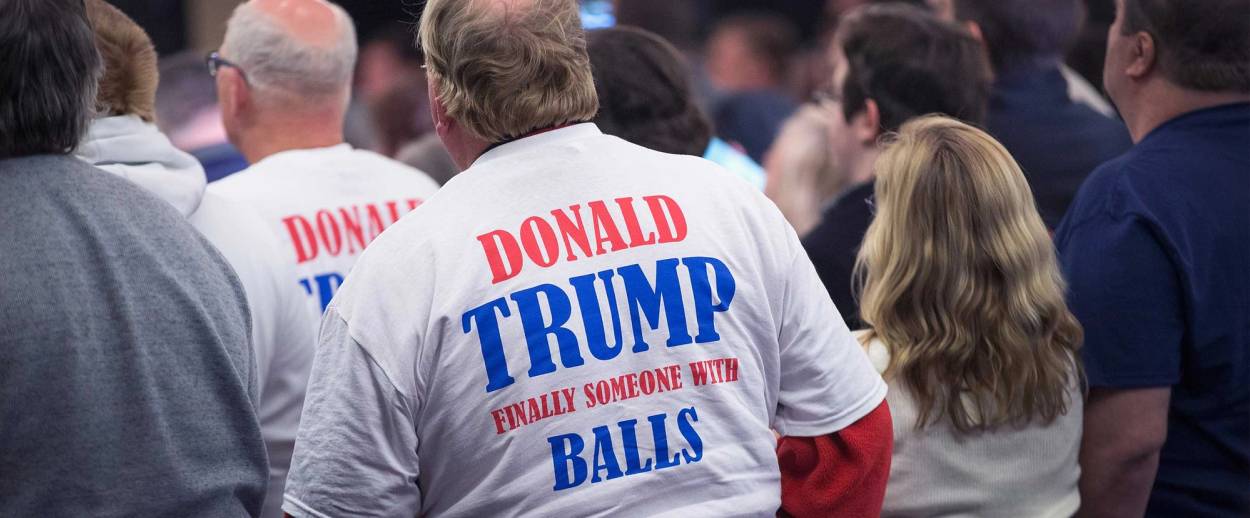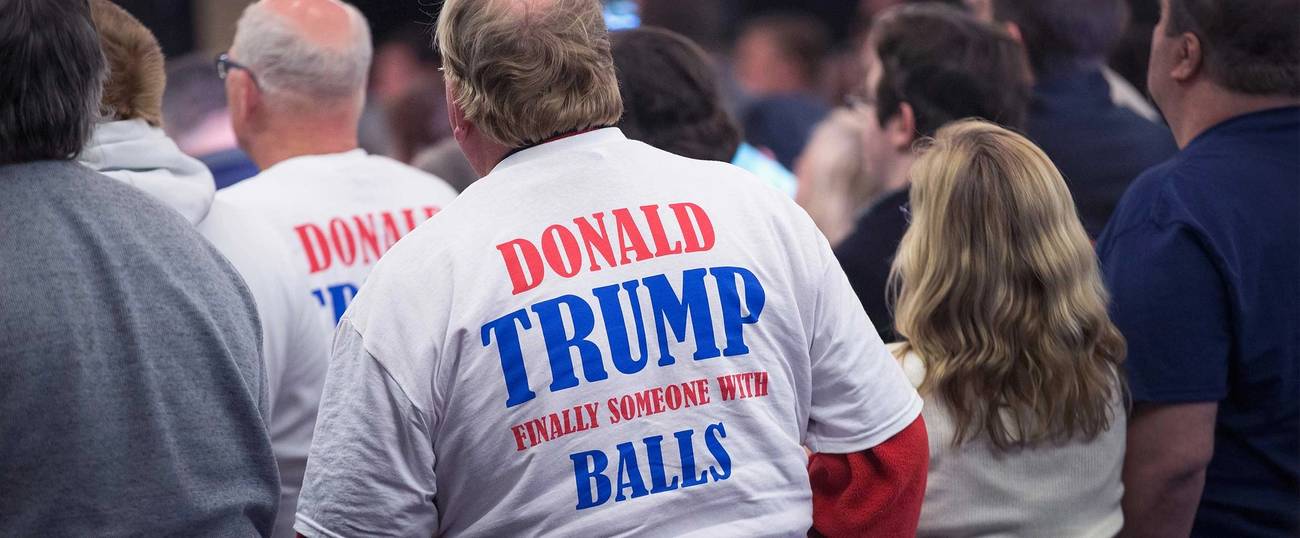One of the most enduring phrases from George W. Bush’s presidency was the “soft bigotry of low expectations.” Demanding less from people by abandoning traditional benchmarks of achievement in the belief this would help them succeed, Bush argued, is paternalistic, especially so when applied to historically disadvantaged racial groups. Bush uttered his admonition in a 2000 speech to the NAACP announcing his No Child Left Behind education initiative. Holding inner-city black kids to a lower standard than those in largely white, wealthier districts, Bush told his African American audience, unfairly limits their potential.
Bush’s critique was largely directed at liberals who argued against uniform national education standards on account that they inherently discriminate against poor and minority students. Today we see this same, patronizing mentality in action except with a different set of apologists and intended beneficiaries: conservative political leaders and media commentators who defend the white working-class voters flocking to the presidential campaign of Donald J. Trump.
Everywhere you look, analysts are offering elaborate theories for Trump’s improbable rise on the backs of this constituency to the top of the Republican pack. The GOP’s fecklessness battling illegal immigration, we are told, has convinced fed-up primary voters to support the candidate promising to build a wall along America’s southern border. Adding to the frustration of the white working class are free-trade deals, pushed by out-of-touch urban coastal elites, which have exported manufacturing jobs overseas and depressed wages at home. Finally, this narrative goes, an increasingly aggressive and intolerant identity politics-obsessed Left, whose denizens casually use the word “white” as a pejorative and insist that anyone who claims “All Lives Matter” is a racist, have driven decent, sensible people into the arms of a candidate who is a walking, talking macro-aggression.
All of these rationalizations for Trump’s popularity point to real phenomena in American society. But they are ultimately just that: rationalizations for fundamentally irrational behavior. Amidst denunciations of the Republican “establishment” (the definition of which has become so expansive as to now include Sen. Ted Cruz, who is loathed by Republican elites as much as, if not more than, Trump) and irreversible forces like globalization, few are willing to state the obvious root of Trump’s ascendance: the millions of people who support him.
Trump is manifestly unprepared to be president of a fake, for-profit “university,” never mind that of the United States. And whether or not he earns the GOP nod in Cleveland this summer, Trump will have earned the distinction of being the most unqualified person in American history to make it this far in a major party presidential nomination campaign. Yet in spite of Trump’s obvious and dangerous incompetence, there persists a tendency among the commentariat to blame anybody and anything but the rubes supporting him as the cause of this catastrophe for American democracy.
Writing in The Washington Post, former Republican Congressman Joe Scarborough, one of Trump’s most unctuous media enablers who regularly turns his MSNBC show over to the candidate’s early morning stream of consciousness diatribes, names me as one of several “conservative opinion shapers” who are “denigrating millions of working-class Americans let down by a quarter century of Bush-Clinton rule as drug addicts or white supremacists.” Former Speaker of the House Newt Gingrich, displaying that common touch that has perennially made him so popular among the American electorate, recently praised the born with a silver spoon in his mouth Trump as a “blue-collar bar room brawler” to a secret meeting of House and Senate chiefs of staff. Former New York City Mayor and presidential candidate Rudy Giuliani is but the latest GOP figure to debase himself, effectively endorsing Trump last week. And countless others, while not explicitly backing Trump, have deferred to the will of Republican primary voters despite the fact that it is the upcoming convention’s delegates who will be choosing the nominee. In a widely read open letter, Stephanie Cegielski, a former spokeswoman for Trump’s Make America Great Again Super PAC, began by stating, “I respect Trump’s fans.”
Here’s where I differ: I do not respect anyone who considers himself or herself a “fan” of Donald Trump. Yes, the economy has not been kind to white working-class voters (it hasn’t been particularly kind to black or Hispanic working-class voters either). Yes, the PC police, whose noxious antics I have written about at length, have gotten out of hand. Yes, it is true that world leaders have taken President Barack Obama’s mettle and found it severely wanting.
I do not respect anyone who considers himself or herself a ‘fan’ of Donald Trump.
None of these things, however, justifies voting for an authoritarian, misogynistic, epically narcissistic man-child whose election would clearly be a disaster for the country. The notion that we must be solicitous of Trump voters—that we have to treat their idiocy as a mature and well-considered expression of political preference—is the “soft bigotry of low expectations” defined, as it basically concedes that lower-income whites have good reason to endorse the absurd proposition that Donald Trump is in any way qualified to become leader of the Free World.
All the high-falutin’ nonsense that commentators gin up to “explain” support for Trump reminds me of the endless series of excuses lodged on behalf of another electorate not so long ago: the Palestinians, who voted overwhelmingly in a free election in 2006 to catapult the Islamic jihadist Hamas movement to power. Though Hamas, since its founding some 30 years ago, has pledged itself to destroy the Jewish State through merciless acts of terrorism, a whole slew of analysts and journalists proclaimed that the real reason Palestinians supported the party was not because of its very clearly expressed policy position vis-à-vis the existence of Israel but rather its anti-corruption stance and “social welfare programs.” Like disillusioned Trump voters, Palestinians were expressing legitimate “grievances” with their own establishment.
But as Nathan Brown, a political science professor at George Washington University and expert on Arab politics, has written about Hamas, “parts of the organization attempt to provide some social services, but the number of Palestinians who benefit from those services is small … dwarfed by those who get assistance from the Palestinian government, international aid bodies and nongovernmental organizations.” And even if Hamas was less corrupt than its more secular alternative, Fatah, this cannot insulate the Palestinians who voted for it from the consequences of their appalling decision to elect a genocidal terrorist organization to represent them. The idea that people in a democratic system are collectively responsible for the choices that their elected leaders make is a cornerstone of democratic thought and practice—and that’s perhaps especially true when those leaders are murderers or con artists.
What motivates the “soft bigotry of low expectations” is always the same: the hope of maintaining deeply held pieties, which predictably wind up injuring the very people they’re meant to help. In the case of the slogan’s original utterance, it was an unwillingness to confront the reasons why inner-city schoolchildren were receiving inadequate educations. With the Middle East conflict, it was a reluctance among international observers to confront the fact that the “two-state solution” beloved in the West was not seen as a very desirable outcome by Palestinian voters or their leaders, who much preferred the idea of eliminating Israel.
What also unites these various manifestations of “the soft bigotry of low expectations” is that they divest individuals of personal responsibility for their actions. Which is what makes the apologies for Trump supporters particularly hypocritical, considering how “personal responsibility” has been a mantra of the conservative movement. For decades, the right has complained about the left’s pampering minority voting blocs with government subsidies (“free stuff”) and set-asides. Now, in utter betrayal of the free trade, low regulation, open market capitalism they’ve always supported, these conservatives are advocating the same bundle of special goodies for their own misbehaving base.
The indulgence of Trump voters by certain members of the conservative intelligentsia and Republican leadership is an example of a larger intellectual-cultural propensity to explain away every kind of bad behavior by anyone who can be painted as oppressed. (A notable exception has been National Review, whose Kevin Williamson recently wrote a piece excoriating poor whites who see Trump as their “Father Führer,” a declaration that earned him a great deal of enmity from emotionally wounded Trump supporters.) Traditionally, this argumentative tactic has been used by liberals to protect their own favored groups—blacks, Muslims, illegal immigrants, Palestinians—from criticism. Now, ironically and tragically, it’s being deployed by conservatives in supposed defense of working-class whites.
The fact that conservative commentators are now reaching for this explanation to explain away Trump voters’ attitudes and behaviors shows that they are hypocrites and even bigots. For what they objected to all along about material-situational excuse making for black people or Hamas supporters wasn’t the mode of explanation, but that they felt no affinity with those particular groups. These conservative leaders are pretty much the same as the liberal commentators and Democratic machine politicians they’ve always claimed to oppose; the only difference is that they have another set of preferred in-groups. And this double standard in turn weirdly explains something important about the Trump phenomenon, namely the idea that the conservative entertainment complex is as elitist and intellectually bankrupt as its liberal opposition.
Like this article? Sign up for our Daily Digest to get Tablet Magazine’s new content in your inbox each morning.

